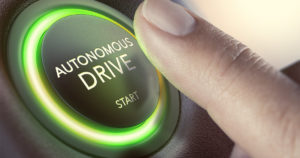NHTSA Proposes New Protection Standards for Driverless Vehicles
August 17, 2020 Just a few months ago, the National Highway Transportation Safety Administration (NHTSA) issued its first proposal to modernize the existing occupant safety standards for vehicles equipped with semi-automated driving systems. The standards that are currently in place fail to take into account automated vehicles without traditional manual controls. Creating up-to-date occupant protection standards is a necessary step towards adequately protecting occupants in driverless vehicles.
Just a few months ago, the National Highway Transportation Safety Administration (NHTSA) issued its first proposal to modernize the existing occupant safety standards for vehicles equipped with semi-automated driving systems. The standards that are currently in place fail to take into account automated vehicles without traditional manual controls. Creating up-to-date occupant protection standards is a necessary step towards adequately protecting occupants in driverless vehicles.
Automated Driving Systems
It is important to note that at this time, fully automated vehicles are not yet on the market and are only being used in ongoing trial programs. Although 100% driverless vehicles are not yet in reach for consumers, there are a variety of automated driving features available in a wide range of automobile makes and models. Some examples of these available features include:
- Autopilot features specifically for highway driving
- Vehicle braking in the case of an impending collision (also known as collision avoidance)
- Lane departure warnings, or a mechanism that warns the driver when the vehicle begins to move out of its lane
- Parking assist systems
One of the primary goals of vehicles equipped with fully or semi-automated driving systems is to decrease the number of injury-causing and deadly accidents that happen every day. With more than 37,000 people dying from injuries they sustain in road crashes every year, this is without doubt an important goal. Despite this safety goal, however, automated vehicles are not exempt from serious hazards. For example, in 2018 a pedestrian was fatally struck by one of Uber’s automated vehicles. From 2016 to 2019, at least four operators of Tesla’s automated vehicles were fatally injured in deadly crashes.
If passed, the NHTSA’s proposed rule will address some of the safety concerns for occupants in driverless vehicles. One way the proposal aims to do this is by implementing requirements such as applying frontal passenger protection to the traditional driver seat position even if there is no steering wheel present, which is not currently required by federal law. The proposal also seeks to revise the requirements and test procedures that are in place for removing manually operated driving controls in vehicles with automated driving systems.
Liability and Automated Driving Systems
Because automated driving systems are relatively new and driving technologies are constantly changing, there are still many questions about liability, manufacturing, and safety requirements that remain in part unanswered by state and federal legislation. The NHTSA’s recent rule proposal is just one key example of how federal agencies and legislators are trying to respond to the rapid technological advances being made by automotive industry.
When it comes to liability in vehicles equipped with automated driving systems, there are questions about whether the software engineers or manufacturers are responsible for damages or if liability falls on the occupant. In the case of a fatal accident involving a Tesla operating on autopilot, for example, there is evidence that the software was warning the driver to disengage autopilot and take manual control of the vehicle at the time of the crash. Does this mean that the driver or occupant is responsible, or the software that allowed the car to remain in its self-driving mode? Creating legislation that adequately answers these questions is crucial not only for the sake of clarity, but also in order to provide comprehensive protections for occupants in all vehicles.
Do you have a question about injuries you sustained in an automobile accident involving a vehicle with an automated driving system? Someone at our firm can help. To learn more, contact a representative online now.
Philadelphia Personal Injury Lawyers at Galfand Berger, LLP Represent Victims of Automobile Accidents
Galfand Berger has offices located in Philadelphia, Bethlehem, Lancaster, and Reading, we serve clients throughout Pennsylvania and New Jersey. To schedule a consultation, call us at 800-222-8792 or complete our online contact form.
 Google Screened
Google Screened
